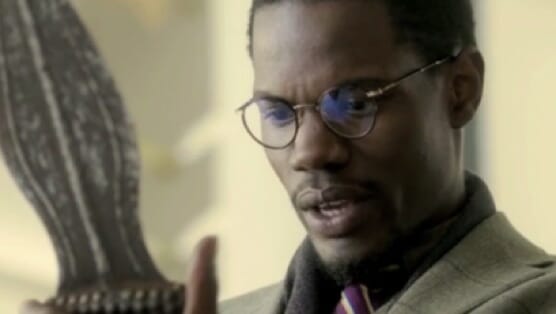Da Sweet Blood of Jesus

A few years ago, around the time of the release of his 2008 film Miracle at St. Anna, something terrible happened to Spike Lee—he started making bad movies. Documentary work aside, Lee’s filmography has been studded with critical and financial duds, including his remake of Oldboy and his faltering return to indie aesthetics, the disappointing Red Hook Summer. Da Sweet Blood of Jesus, a reinterpretation of the 1973 cult classic Ganja & Hess (a film that, admittedly, I’ve never seen), continues Lee’s recently rediscovered run-and-gun, low-budget style, formerly his filmmaking bread and butter. Da Sweet Blood was reportedly shot over a brief 16 days, and was Lee’s first crowdsourced effort, the funds having been raised through a Kickstarter campaign (apparently without the same backlash bestowed upon Zach Braff). As a longtime Spike Lee fan, I’m sorry to say that many of his financial backers, celebrity and otherwise, will be disappointed with the final product.
Da Sweet Blood is a movie about people drinking blood that’s not a vampire movie. In an introduction that plays like a no-budget Indiana Jones knockoff, a well-to-do professor, Dr. Hess Green (Stephen Tyrone Williams) comes into possession of a mysterious African artifact, a tribal bladed weapon of some sort. He retreats to his posh Martha’s Vineyard estate, where he’s joined by a colleague, art curator Lafayette Hightower (Elvis Nolasco). Then things get very strange very fast. Hightower kills Green with the artifact and commits suicide, but before long Green is revived, only to find himself lapping up Hightower’s pooling blood off the ground. A few days later, Hightower’s wife, the feisty Ganja (Zaraah Abrahams), arrives looking for her estranged husband. She and Green enter into an intimate relationship built around a shared interest in conversation, sex and literal blood lust.
This may sound juicy, but the film’s wooden dialogue and pretentious aspirations strip the proceedings of any real passion. Lee’s direction is baffling, especially in the initial scenes in which Hightower and Green discuss high-minded concepts of art and philosophy. The two actors are clearly talented, but struggle with an unnatural, forced script that is more concerned with conveying theories than sounding like things that people would actually say. The movie feels extremely disjointed the whole way through, and for all its blood and sex, it’s actually kind of boring. A little more about the latter element; there are moments bordering on soft-core porn throughout, where Lee’s cinematic gaze seems to drill holes through the naked bodies of the female actors. Near the end of the movie, a female friend of Green’s arrives at the house. Ganja, who has gone through a marked transformation by this point, seduces her and the two wind up showering in the bathroom before ending up on the floor in Sapphic ecstasy. The scene would not feel out of place in a Cinemax After Dark flick.